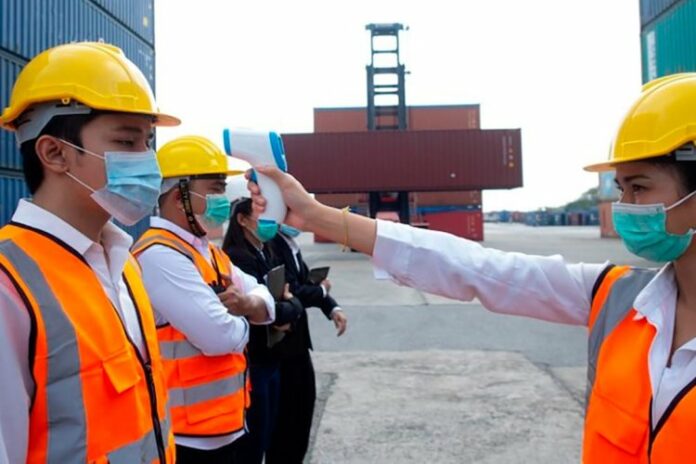The UN International Labour Organization (ILO) tripartite of shipowners, governments, and transport workers unions have agreed to new measures to strengthen the Maritime Labour Convention (MLC), based on lessons learned from the COVID-19 pandemic.
At the ILO meeting that took place between May 2 – 13 in Geneva, Switzerland, delegates agreed to implement amendments on: bolstering legal requirements for seafarers to be able to access medical care ashore; strengthening health and safety PPE policies on board ships to protect against accidents; and to further facilitate seafarers’ communication with their loved ones ashore.
A new ILO report published in advance of the negotiations highlighted governments’ failure to comply with critical provisions of the MLC during the pandemic, resulting in preventable deaths, and an enormous toll on seafarers’ mental health. At the height of the pandemic, 400,000 seafarers were affected by the crew change crisis, unable to return to shore or access ships due to draconian travel restrictions.
The International Chamber of Shipping is the longstanding ILO representative of the global maritime employers’ group.
The negotiations occurred against the backdrop of the current seafarer crisis in Ukrainian ports and the Sea of Azov. Governments reiterated their support for the ILO resolution calling for the swift and safe disembarkation and repatriation of the 500 remaining trapped seafarers. They called for the prompt delivery of critical supplies, such as food, water, and medicines to these key global workers caught in the conflict zone.
In advance of the meeting, ICS also published a report outlining the impact of COVID-19 on shipping, seafarers and maritime labour markets, and recommendations to mitigate future crises.
Ms. Corinne Vargha, Director of the International Labour Standards Department of the ILO, remarked:
“We welcome the adoption of these amendments which are a testimony to the added value of tripartism and international social dialogue. The outcomes of this meeting will in effect reinforce the relevance and impact of the Maritime Labour Convention, 2006 (as amended). The ILO will continue working with governments, seafarers and shipowners to tackle challenges as they emerge and ensure a full and harmonious implementation of the Convention.”



